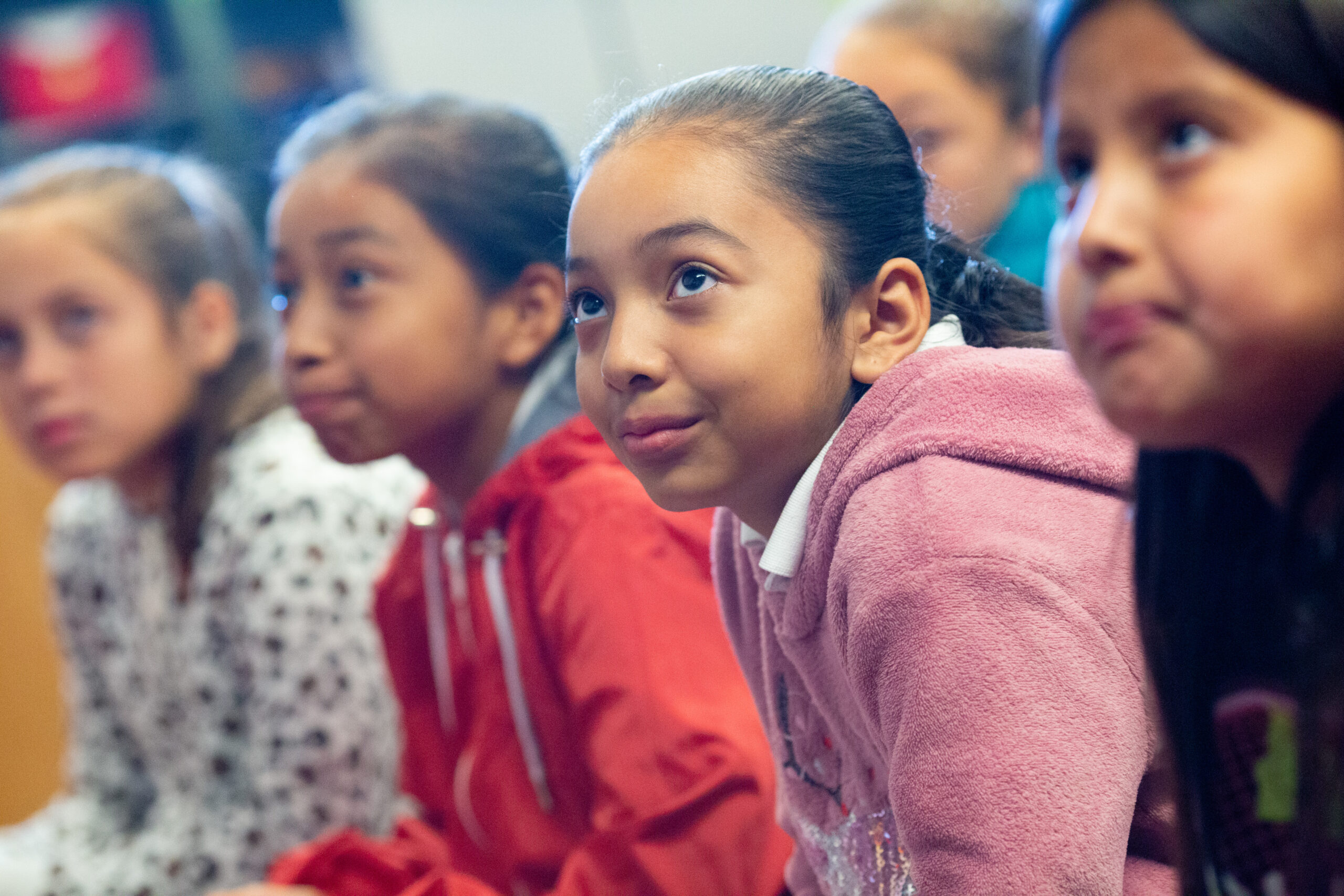By Megan Humburg, Jessica McClain, Wendy Walter
Key Ideas
- The EngageAI Institute partnered with a local all-girls after-school club, Girls Inc., which empowers girls in our community to develop skills and build supportive relationships
- The girls shared thoughtful insights with our researchers about what they were learning from the demo game and how they would improve the design to make it more relevant to their own neighborhoods and lives.
- We need to give the next generation of girls a voice in the kinds of technologies that will be used in their classrooms, so that they can play an active role in designing their learning experiences.
Artificial intelligence (AI) in education is advancing at a rapid pace, and as these technologies improve, teachers and students are exploring what potential AI might have for classroom learning. At the EngageAI Institute, we want students in our communities to have opportunities to play an active role in how these technologies get used in their classrooms and impact their learning experiences.
EngageAI researchers have been designing an AI-supported educational game about food systems, food justice, and pollination that can help middle school students investigate socio-scientific issues that are relevant to their own communities. Through this adaptive learning experience, students explore and understand how the food systems in their cities are deeply connected to the health of the ecosystem, its pollinators, and the people who live there.

A player in the demo game explores the empty lot and talks to community members about what they think the mayor should do with the lot
To integrate student voices into our design process, we have partnered with Girls Inc. of Monroe County, a local all-girls after-school program that strives to empower young girls to be “strong, smart, and bold”.
Originally established as the Girls Club of Monroe County in 1974, Girls Inc. equips girls to navigate gender, economic, and social barriers and look toward a future where girls and women are empowered and part of an equitable society. We sought out to partner with Girls Inc. in order to give girls in their community the opportunity to weigh in on an AI-driven educational game that they might encounter in their classrooms in the future. We strive to understand how the girls think about AI for learning, what their ideas are for how AI can help them learn, and what kinds of features they want to see in educational games supported by AI. The gaming and game design industries are often male-dominated spaces where girls have to fight to have their voices heard and respected, so we wanted to center their ideas and needs in our game design process.
After playtesting and providing feedback on our AI-supported game, the students at Girls Inc. brainstormed ideas about how to create a compelling ending for this kind of scientific investigation game, so that players would get different endings based on how much evidence they gathered in the game and how compelling their arguments were to support the community garden. They also reflected with us about how the game’s story could be more strongly connected to aspects of their own neighborhoods, such as added locations to the game to represent familiar restaurants or foods that their families like to eat.

A player explores a community garden later in the game to learn about its benefits
At the end of our discussion, the girls were faced with a final question—If you were the mayor of this town, what would you do with the neighborhood’s empty lot? The girls eagerly announced that they would all choose to build a community garden, with one girl saying that a garden is “more safe” than alternatives, like a parking garage. Another girl shared her thoughts about the value of a community garden by considering the people of the neighborhood:
“Some people don’t have very much food…And [a garden] might be a little bit easier, you won’t have to pay as much money to get food. I mean, maybe you’re Mayor because you have all this money or something, and you can buy all the food that you want, but some people don’t have that much money.”
Our team found incredible value in our time with Girls Inc.; their feedback gave us vital information about how AI-driven educational games can support students in investigating and learning about socioscientific issues that impact their communities. The girls were thoughtful, confident, and enthusiastic about playtesting these learning experiences, and we encourage more researchers to open up dialogues with their local after-school clubs. Doing so can empower girls in your community to help design the technology that will shape their future classrooms.
Interested in learning more?
Discover the empowerment work being done in your own community by exploring the Girls Inc. website and finding your local chapter!
Want to keep in touch with the EngageAI Institute and hear more about our work? Sign up for our newsletter.
Photo credit for featured image: Allison Shelley for EDUimages

